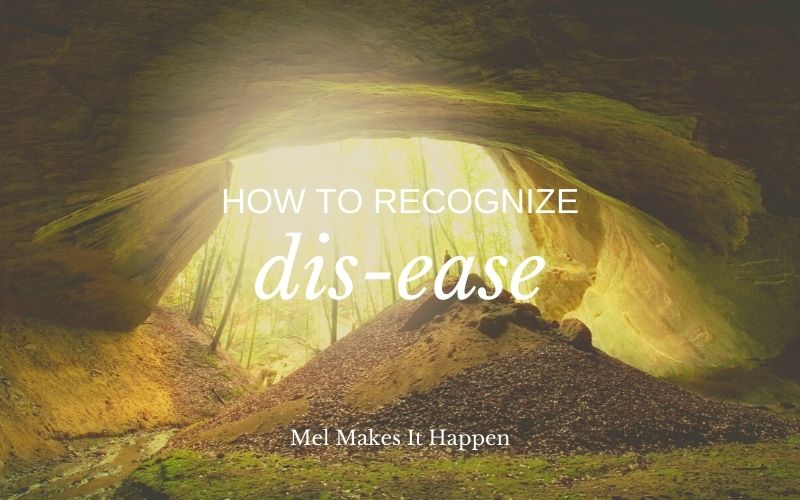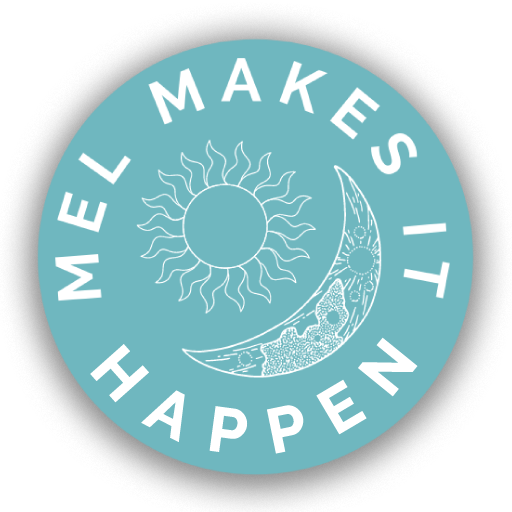There is a lot that I’ve learned about my overall health and the very interconnectedness of all aches, stressors, symptoms, emotions, and more that I feel needs to be talked about. Having gone through the process of healing many times, and still going through it, I wanted to bring some illumination on how to recognize when dis-ease exists in the body.
You can also check out my post on The Process of Healing for more details about what it’s like after recognizing what is not right.
Dis-ease is not necessarily disease but it can be a sickness that you can’t put your finger on. It can be a variety of symptoms that do not show up on a blood panel or when you step on a scale. The symptoms have more to do with not feeling happy, not feeling whole, and not feeling self-worth.
Dis-ease is a state of being out of alignment with your natural state of authenticity, radiance, and vibrant health.
Because this is the internet, I will also put the disclaimer that anything I share here is just personal experience and meant to be used for educational purposes and not as a replacement for medical care, professional advice, or otherwise.
I’m going to begin by breaking down the three main components of pain or any sort of dis-ease in the body.
I consider the following three areas whenever I am ill or simply not feeling myself. These are the frames by which I view symptoms and seek to create harmony amongst them. There may be times when only one area needs attention but, most often for me, when signs show up in one place, it indicates the need for attention somewhere else.
Mental/ Emotional Component
Anyone who has experienced loss, disappointment, or heartbreak knows that these are strong emotions that can be difficult to make peace with. Any stressful or involving tasks, experiences, or even relationships with people can create a heavy weight that affects our health. Additionally, our mindset plays a large role in how we feel, too. Those who hold personal strengths such as positive thinking, resilience, optimism, willpower, mindfulness, and a good mood tend to have better self-management tendencies, as shown in this study.
Has stress ever kept you up at night worrying about something? Maybe to the point where you developed a headache? That has happened to me more often than I’d like. Stress is often talked about as being a mental sickness but it can manifest physically, too.

Physical Component
The physical component is what often stands out to us first when there is something “wrong”. This could be pain that burns, aches, tingles, or has any sensation of discomfort or out of the ordinary. Tightness, stiffness, or general fatigue are also tell-tale signs of something being off in the body. For a long time, I dealt with wild gastrointestinal distress (and still do on-and-off) such as bloating, constipation, dysbiosis, abdominal pain, and even the development of food sensitivities/intolerances. Rashes, itchy skin, and allergies, are also very much tied to other imbalances in the body.
Sometimes it can very plainly be a case of an allergy where eating something will cause a severe reaction in the body. However, when symptoms, like the ones described above, seem to appear out of nowhere, then I can’t help but wonder where it’s coming from and how it started. The weight of mental and emotional burdens are enough to take a toll on physical health. Read more in-depth about my experiences here.
Spiritual Component
We cannot dismiss the very important component of spirituality. For many, religion or a practice that offers ways to make sense of our humanness proves to be helpful, especially during difficult times. I believe an established sense of spirituality helps us ground into our values, our heart-centered beliefs, and instill us with the power to be our own healer. This is a complex facet that can definitely take up a whole post on its own. However, just to clarify: we each determine our sense of spirituality. There are NO rules about how, when, or if we do something.
For those without a spiritual practice, simply honing in on values and mindfulness can be beneficial, too. That can be a bit more cerebral but it still helps to ignite awareness of the self and root into the inherent worthiness we each have. Beyond the facts, knowledge, and physical evidence, whatever ideas or beliefs we hold are going to be the thing that motivates us forward or keeps us from healing.
xo,
Melanie
Like this post? Pin it!


